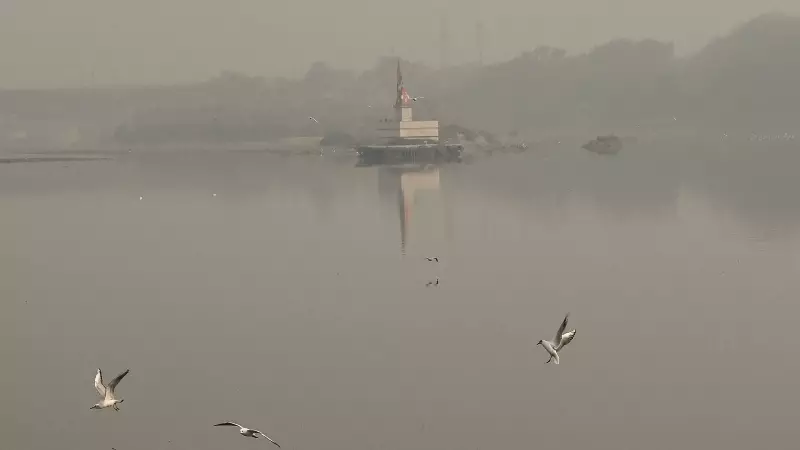
While Delhi dons its festive best, adorned with lights and celebrations, a palpable unease hangs thick in the air—quite literally. The capital's annual tryst with severe pollution has returned with a vengeance, transforming the joyous season into a period of health anxiety and environmental guilt.
The Invisible Price of Celebration
Breathing in Delhi during the post-Diwali period feels less like a biological necessity and more like a conscious, hazardous act. The Air Quality Index (AQI) frequently plunges into the 'severe' and 'hazardous' categories, turning the city into a gas chamber. The visible smog is a constant, grim reminder of the environmental cost of unchecked pollution sources, from vehicular emissions to agricultural stubble burning.
A City Struggling to Breathe
The human impact is immediate and widespread. Hospitals report a surge in patients complaining of:
- Persistent coughing and throat irritation
- Breathing difficulties and aggravated asthma
- Burning eyes and skin allergies
- Long-term cardiovascular and respiratory risks
Vulnerable groups—children, the elderly, and those with pre-existing conditions—are forced to retreat indoors, their lives disrupted by the very air they must breathe.
Beyond the Crackers: A Complex Crisis
While firecrackers during Diwali provide a dramatic visual, they are merely the tipping point in a complex, year-round problem. The winter pollution cocktail is brewed from multiple ingredients:
- Stubble Burning: Agricultural fires in neighboring states contribute significantly to the particulate matter.
- Vehicular Pollution: Delhi's massive vehicle fleet remains a primary source of nitrogen oxides and other pollutants.
- Construction Dust: Unchecked dust from the city's endless construction projects adds to the particulate load.
- Meteorological Conditions: Cooler temperatures and slower winds trap pollutants close to the ground, creating the infamous smog.
Living with the 'Pollution Guilt'
There's a growing sense of collective guilt among residents. The desire to celebrate traditionally clashes with the awareness of contributing to a public health emergency. This internal conflict—the 'guilt wrapped in festivity'—defines the modern Delhi winter. People are caught between cultural traditions and the urgent need for environmental responsibility.
What Lies Ahead?
The situation calls for a multi-pronged approach that goes beyond temporary fixes. Sustainable solutions, stricter enforcement of environmental laws, and a collective shift in public consciousness are needed to ensure that the festive season in India's capital is truly a celebration, not a health crisis.





